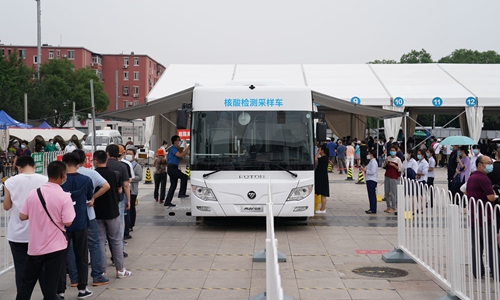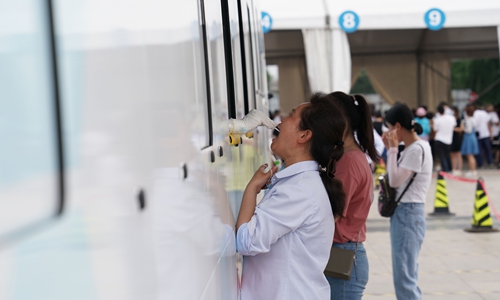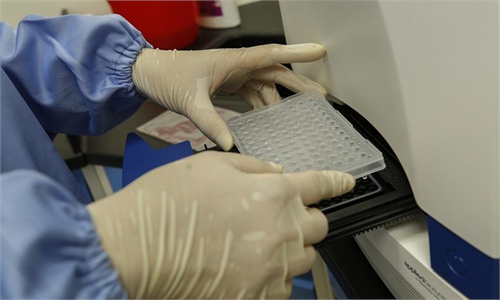
The first two Foton sampling vehicles to facilitate COVID-19 nucleic acid tests are put into operation in Beijing's Chaoyang and Xicheng districts on Sunday. Photo: cnsphoto
Beijing has adopted mobile sampling vehicles to facilitate COVID-19 nucleic acid testing for residents, as the capital city is demanding large-scale sampling after more than 300 people were confirmed infected with COVID-19.The first two Foton sampling vehicles to facilitate COVID-19 nucleic acid tests were put into operation in Beijing's Chaoyang and Xicheng districts on Sunday.
Each vehicle has four sampling points and each point is capable of testing 100 people within one hour. That means each vehicle can complete about 400 tests per hour and the two vehicles are able to test 10,000 to 20,000 people per day.
Despite scorching weather and storms in Beijing, the air-conditioned vehicles allow people to get tested at any time.
In order to avoid the risk of cross infection and improve the working environments of medical staff, Beijing officials asked Foton to customize vehicles to facilitate the COVID-19 nucleic acid tests, the Science and Technology Daily reported.
The 10.5-meter-long vehicles are refitted Foton electric vehicles and were completed within just two days.

Photo: cnsphoto
Since June 11, when a man living in the Xicheng district tested positive for COVID-19, about 100,000 people living or working on Zhanlan Road in Xicheng have taken nucleic acid tests, including couriers, restaurant staff, retail employees and residents from 22 communities, the Science and Technology Daily reported, citing Liu Yaoyong, head of the Zhanlan Road sub-district office on Sunday.Liu said the sampling vehicles can satisfy testing demand for local residents more conveniently.
Beijing has taken samples from 8.29 million of its residents as of Sunday, of whom 7.68 million have completed nucleic acid testing, local health authorities told a press conference on Sunday. That number means that 38.4 percent of the capital's total population has been tested for the coronavirus.
Global Times


